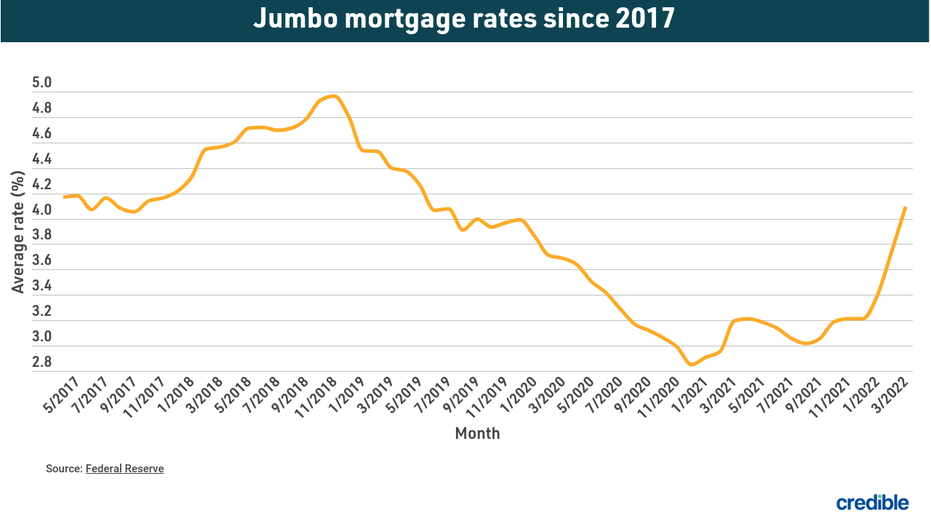Navigating the Jumbo Loan Process: Professional Tips for Protecting Your Desire Home
Navigating the Jumbo Loan Process: Professional Tips for Protecting Your Desire Home
Blog Article
The Influence of Jumbo Finances on Your Financing Choices: What You Required to Know Prior To Using
Jumbo lendings can play an essential duty in shaping your financing choices, especially when it involves obtaining high-value residential or commercial properties. While they give the opportunity for bigger lending amounts without the worry of private home loan insurance (PMI), they also feature strict certification standards that call for careful consideration. Understanding the equilibrium in between the advantages and challenges positioned by these lendings is vital for potential customers. As you weigh your options, the implications of rate of interest and item accessibility may prompt you to reassess your economic approach relocating forward (jumbo loan).
Comprehending Jumbo Lendings
Recognizing Jumbo Loans needs a clear understanding of their special qualities and needs. Jumbo loans are a kind of mortgage that surpasses the conforming financing limitations developed by the Federal Housing Money Agency (FHFA) These limitations differ by place yet usually cap at $647,200 in the majority of areas, making big lendings necessary for financing higher-priced properties.
Among the specifying features of jumbo financings is that they are not eligible for purchase by Fannie Mae or Freddie Mac, which brings about stricter underwriting guidelines. Debtors must typically show a greater credit history, generally above 700, and give substantial paperwork of income and possessions. In addition, lending institutions may call for a bigger down payment-- usually 20% or more-- to minimize risk.
Rate of interest rates on big car loans can be a little more than those for adhering financings due to the boosted risk presumed by the lender. The lack of exclusive home loan insurance (PMI) can offset some of these prices. Comprehending these aspects is important for potential debtors, as they substantially affect the terms and usefulness of safeguarding a big financing in today's affordable realty market.
Benefits of Jumbo Finances
Jumbo finances use unique advantages for buyers looking for to buy high-value buildings that go beyond traditional car loan limits. Among the main benefits of big car loans is their ability to fund larger amounts, permitting purchasers to acquire homes in costs markets without the restrictions imposed by adjusting funding limits - jumbo loan. This flexibility makes it possible for property buyers to view a more comprehensive variety of properties that might better match their preferences and needs
In addition, jumbo loans commonly come with affordable rate of interest prices, particularly for consumers with strong credit report profiles. This can lead to considerable cost savings over the life of the loan, making homeownership extra inexpensive over time. Additionally, jumbo financings can be tailored to fit specific financial circumstances, supplying different terms and amortization alternatives that align with the customer's purposes.

Obstacles of Jumbo Financings
Navigating the complexities of big loans provides a number of obstacles that potential debtors need to be aware of before continuing. Unlike adjusting car loans, big financings are not backed by government-sponsored enterprises, leading loan providers to embrace even more rigorous standards.
Furthermore, big lendings normally feature higher interest rates compared to traditional financings. This raised cost can considerably impact regular monthly settlements and total price, look at this site making it important for customers to very carefully analyze their economic scenario. The down settlement requirements he said for big financings can be significant, usually varying from 10% to 20% or even more, which can be a barrier for many prospective home owners.
One more obstacle lies in the limited schedule of big financing items, as not all lenders provide them. This can bring about a reduced pool of choices, making it critical for borrowers to conduct extensive study and possibly look for specialized lending institutions. Overall, understanding these difficulties is important for any individual taking into consideration a big financing, as it ensures informed decision-making and better financial planning.
Qualification Criteria
For those considering a jumbo loan, meeting the qualification standards is a crucial action in the application process. Unlike conventional car loans, jumbo lendings are not backed by government firms, causing more stringent requirements.
First of all, a strong credit report score is essential; most loan providers require a minimal score of 700. In addition, borrowers are commonly expected to show a substantial revenue to ensure they can comfortably manage higher month-to-month payments.
Down settlement requirements for jumbo lendings are likewise significant. Customers need to anticipate placing down a minimum of 20% of the residential property's purchase cost, although some lending institutions may provide choices as reduced as 10%. Demonstrating money gets is crucial; lenders typically need evidence of enough fluid assets to cover several months' worth of mortgage repayments.
Comparing Financing Choices
When examining funding alternatives for high-value residential properties, recognizing the distinctions in between numerous funding kinds is necessary. Big financings, which exceed conforming lending limits, generally included stricter qualifications and higher rate of interest than standard finances. These finances are not backed by government-sponsored ventures, which boosts the loan provider's danger and can result in more rigorous underwriting criteria.
In comparison, traditional car loans offer even more adaptability and are typically simpler to obtain for consumers with strong credit scores profiles. They might include reduced rate of interest and a wider selection of alternatives, such as taken care of or adjustable-rate home loans. Additionally, government-backed financings, like FHA or VA finances, supply opportunities for reduced down repayments and more tolerant credit report requirements, though they additionally impose restrictions on the finance amounts.

Final Thought
To conclude, big loans present both possibilities and obstacles for possible property buyers seeking funding for high-value buildings. While these finances enable larger quantities without the problem of exclusive home mortgage insurance coverage, they include strict certification requirements and potential downsides such as greater rate of interest rates. A complete understanding of the advantages and challenges related to jumbo car loans is essential for making informed decisions that align with lasting economic goals and goals in the property market.

Report this page